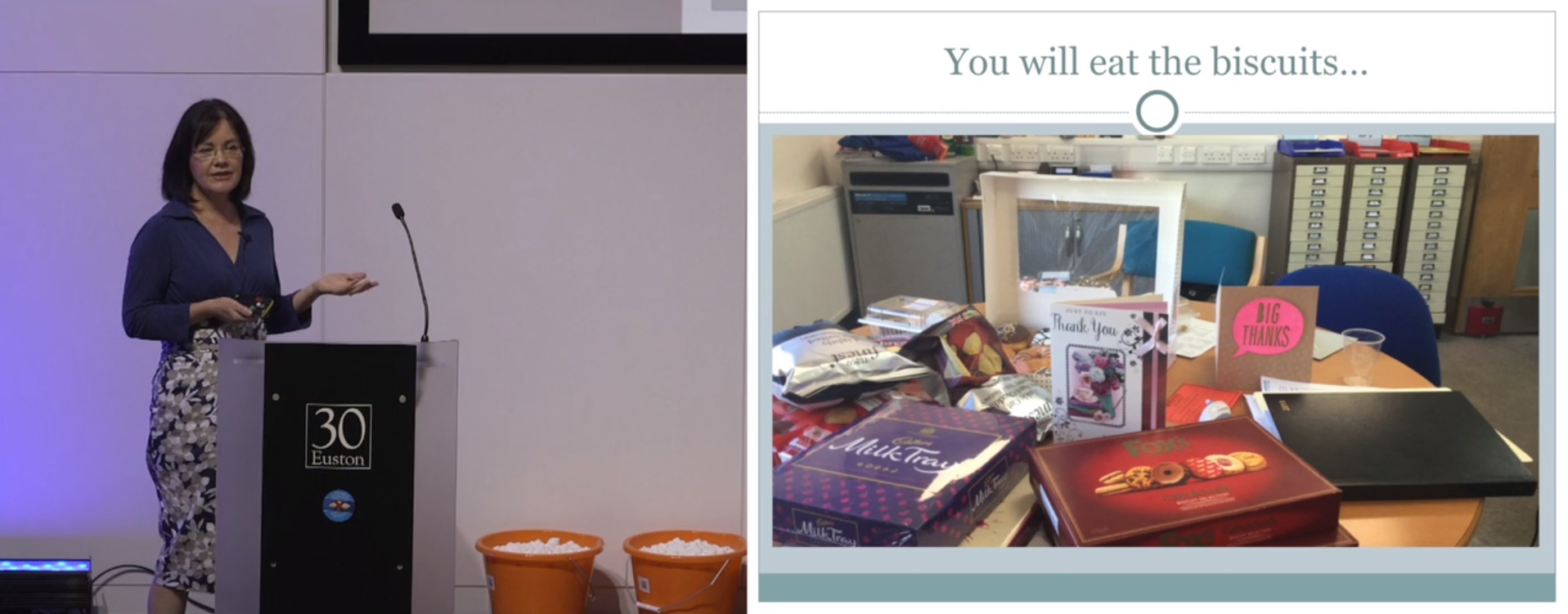Dr Paula Powell guides us through leading a wellness approach in a small organisation and how she has supported staff in the past year.
Dr Powell is the medical director of Willowbrook Hospice in Merseyside. The hospice is a 12-bed in-patient unit for people with life-limiting conditions of all causes. She has been a clinician for 30 years, starting as a GP before finding her very rewarding role in palliative care.
The wellness approach at Willowbrook Hospice has been holistic and has included a focus on eating real food (minimally-processed food and drink) and a lower carbohydrate intake.
“You will eat the biscuits”
Dr Powell starts her talk with a scene familiar to many people who work in the highly emotional world of palliative care. When someone being looked after gets to an end of life moment, bonding around biscuits and chocolate given by the family is a common experience in palliative care.
Paula shares some of those moments with us and concludes that when these moments happen, “you will eat the biscuits.”
Holistic approach
The hospice has introduced a holistic approach to wellbeing. The strategies helped staff to adopt a lower carbohydrate, real food way of eating, along with other wellbeing strategies.
Behaviour change methods employed by Paula include use of Dr Jen Unwin’s GRIN model and Dr David Unwin’s teaspoons of sugar infographic.
The GRIN model is a template for conversations around lifestyle change with GRIN standing for goals, noticing, increments and noticing. Dr David Unwin’s teaspoons of sugar provides an, at-a-glance, way of helping people to see how much sugar is present within different food types. Note that complex carbohydrate is a string of glucose molecules bonded together which break down into glucose when digested.
Dr Powell tells us how doughnuts, sandwiches and a popular local pie presented challenges for healthy eating.
The strategies employed have helped educate staff on exactly what they are eating and to make informed choices.
To help with this, healthy, real food choices have been made more prominently available in the canteen and containers of water with fruit in have been put in place as a strong alternative to fizzy drinks from the vending machine.
The hospice has its own WhatsApp group to help keep staff motivated. Dr Powell tells us how some extra nudges helped with keeping staff focused on healthy living after the Christmas and Easter periods.
Very positive results
Dr Powell takes us through the results of the behaviour change, including a focus on two of her staff, Karen and Susie, who both experienced a terrific turnaround in health.
The improvements seen across staff included a total 20kg of weight loss, irritable bowel syndrome being vanquished, and lower levels of fatigue.
Dr Powell notes that around a third of staff made a very significant change to their lifestyle, another third of staff dipped in and out of the lifestyle changes and another third decided that the low carb lifestyle changes were not for them.
The lifestyle changes helped with achieving significant weight loss, sharing moral support, sharing of resources including books on lifestyle and helping staff be mindful of how much better they feel when choosing healthier options in place of sweeter foods.
Paula also outlined how the simple changes made by individuals created a ripple effect in benefitting others such as partners, children and the parents of staff members.
Dr Paula Powell presented her talk at the Public Health Collaboration conference in May 2019.




